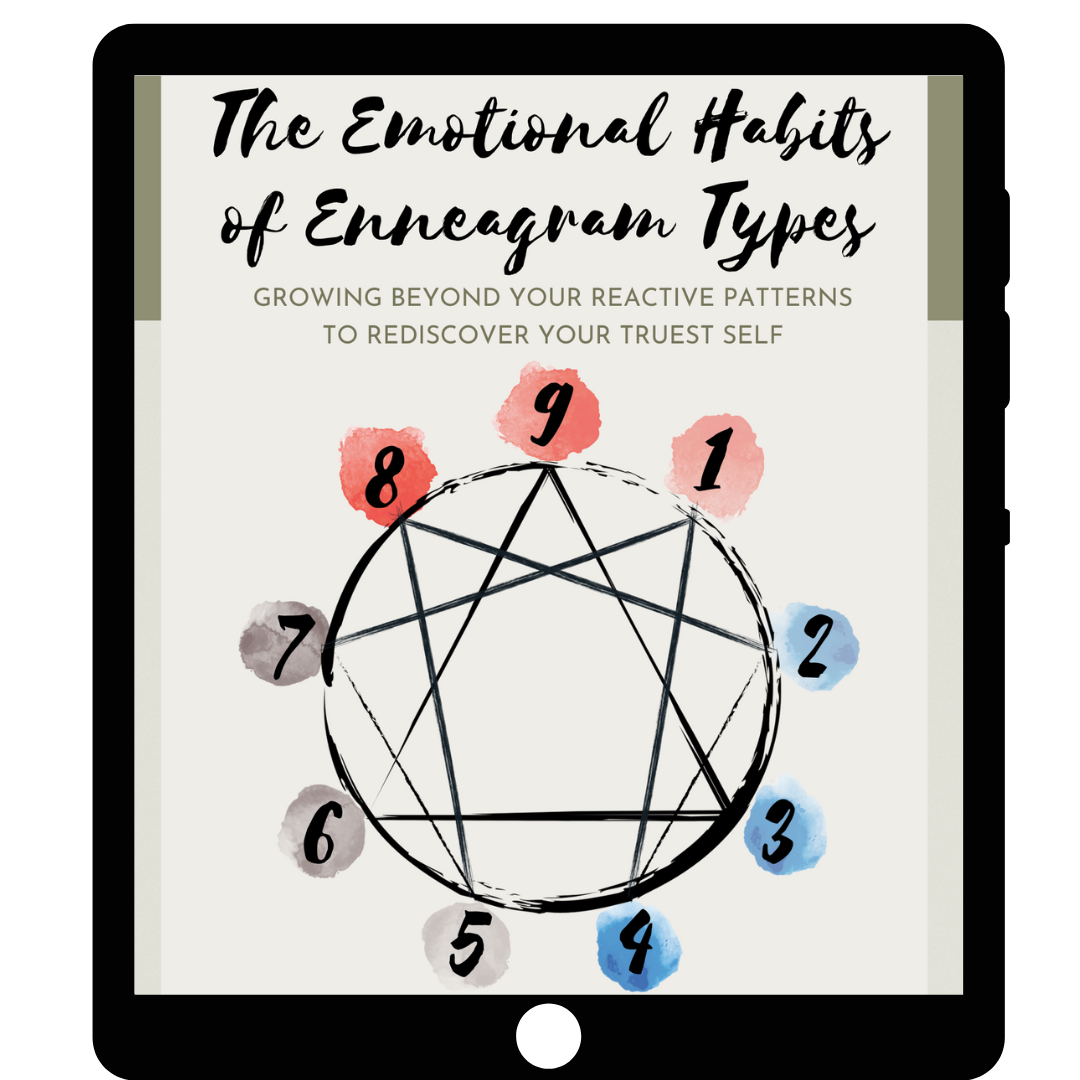Going in Circles
I thought I dealt with this already. Why am I going through this again?
Am I always going to be attracted to the same kinds of assholes?
Are things never going to get better?
Maybe you’re getting into fights with your partner again, and you’re thinking, “I TOLD myself I wouldn’t do this again,” only to find yourself doing the thing again. The same feelings arise, the same words are said, the same dance is danced, and you’re sick of it.
Maybe you vowed to actually finish a project this time, to find out that, ALSO this time, you didn’t.
You might be feeling stuck in your own reactive patterns, helpless to do anything about it. No amount of books you read, seminars you attend, and exercises you try seem to do the trick.
If you find yourself feeling like you’re in the exact same place despite all attempts to change, you might be stuck in a SHAME CYCLE.
The Shame Cycle
In the shame cycle, you keep feeling trapped, going around the same bend. There seems to be no development, and all attempts of change seem negated.
The first time you go around, there’s frustration (“Argh!! What the hell??”) and impatience (“Why isn’t this changing more quickly?!?”). With a burst of motivation and tons of creative juices flowing, you might push yourself (“This time, I’ll get it right.” “Maybe if I change this one thing…”)
When that doesn’t work and you see the same dynamics again, you might try pointing the finger outside yourself with anger/blame. “This time it wasn’t my fault.” “They did this to me; they messed me up.”
Several more rounds of this, confusion, anxiety, and despair set in. “Why can’t I shake this off?” “Why can’t I figure it out?”
Each round you go, you lose energy to bother trying anything different. Frustration and impatience give way to apathy and complacence. “What’s the point, if I’m only going to end up in the same spot anyway?”
Each round you go, you feel more and more hopelessness and defeated. “What if this is all who I am? Maybe I’ll just be this way forever.”
Each round you go, your self-esteem takes another blow. At first, there was guilt (“I messed up.”). Now there’s shame (“I’m messed up.”)
When you get to this point, your nervous system - overloaded with all the stress - starts to collapse.
FIGHT doesn’t work.
FLIGHT doesn’t work.
So FREEZE sets in.
This shutdown can lead down some dark paths:
Depression - you feel nothing will change, the future looks bleak
Anxiety - you feel out of control and disoriented
Shame - you see yourself as permanently flawed
The Resilience Spiral
For ANY human being going through a legit growth process, there WILL be moments when you’ll feel like you’re going through the same thing over and over again.
That’s VERY HUMAN and VERY NORMAL.
(You’re okay! I’m here, too!)
Even when we make similar kinds of reactive, autopilot decisions, NOT EVERYTHING is exactly the same. Some things are indeed different, and possibly different for the better.
When we start looking NOT for what’s the SAME but for what’s DIFFERENT, what we perceive changes: what we’re walking is not a CIRCLE, but a SPIRAL.
Depending on what angle you’re looking at, a circle is a top-down (or bottom-up) cross-section view of a spiral. It’s 2D, not 3D. It’s missing a whole dimension, namely TIME, and how much things have CHANGED over time.
Not a SHAME CIRCLE (where you slow down/stop), but a RESILIENCE SPIRAL (where you keep moving ahead/up).
Sure, you might be doing at Age 29 the kinds of things you did at Age 19 (like procrastinating hard core on a work project like you did on school assignments). But 29-You is WISER than 19-You, because you’ve gained some experience and learned some things (many the hard way). You might still procrastinate, but Older-You will wait ‘til the week preceding the deadline rather than the literal night before, because now you know that your body will definitely NOT be able to pull a Red Bulled all-nighter and survive a full work day.
29-You also knows that if you keep getting defensive when your partner brings up important topics, y’all will go another several rounds of flinging criticism at each other, with neither party coming out on top and both of you losing.
29-You also learned two years ago that sometimes it really DOES help to tell your partner, “Hey, I’m noticing I’m feeling really tense right now because I got off a long day at work. I need some time for my body to catch up to my brain, plus I’m really hangry. Can we eat and hang out first, and then talk about this around 8pm?”
Initially there might still be some annoyance for both of you, but in the end, the thing actually gets talked about and both of you get your needs met much more effectively than you did two years prior.
Give yourself more credit. You’ve earned it.
Hear me out. I am NOT a fan of “Fake it ‘til you make it” or “Look for the silver lining!” I’m not going to tell you to artificially make up something positive just so that you can feel better about yourself, because that’s still a distortion (just going the opposite direction).
I’m just saying, GIVE YOURSELF CREDIT for things you’ve ACTUALLY CHANGED FOR THE BETTER.
Why is this so important? Because your body needs to know that you are an AGENT, meaning a being that can produce a specified effect. Overgeneralizations like “Always” or “Never” statements overload your nervous system, and it collapses beneath it. Once despair kicks in, the mind develops “learned helplessness”, meaning you live AS IF you are truly helpless even when there are things technically still within your control, responsibility, and ability.
Some things ARE outside of your control. That’s fine. You’re not supposed to do anything with them anyway. The point is for you to take ownership of things that ARE within your ability to do something about it. Keep your nervous system online with concrete evidence, including things that you did WELL and things that DID change for the better.
OWN the outcome, good and bad:
If bad, OWN that, repair the situation, learn from it, and try doing something new. Adjust as you go.
If good, OWN that and keep doing more of the same until you learn something that works even better.
Spiral, not Cycle
Some questions to ponder:
What’s your “reactive autopilot mode”? What are some patterns you have in your life, work, or relationships that seem to be stubbornly persistent over time? (The Enneagram might be a useful tool in revealing your autopilot.)
What are 1-3 things that DID change? (Think frequency, intensity, duration, quality, or direction.)
For example, you might still have generally one-sided relationships, but you’re more selective about with whom you’re connecting for what, stir up less emotional intensity in new connections, calibrate how much of yourself you share with others, or say no more often.)
Intentionally LOOK for small improvements in yourself or any situation. When we seek these exceptions, it’s easier to build upon our existing momentum to continue healing, growing, and changing for the better.
EVEN WHEN things FEEL the same, there are STILL differences.
What are your Enneagram type's emotional habits?
Grab this free guide that shows you how to grow beyond the patterns that keep you stuck!
Don't know your Enneagram type?
Find yours here!
© Copyright 2021 Joanne B. Kim. All rights reserved.
JOANNE B. KIM, LMFT
Joanne is a Licensed Marriage & Family Therapist and Certified Brainspotting Practitioner in San Jose, CA, who loves helping people create emotionally thriving relationships. She helps people EXHAUSTED by anxiety, shame, and an allergic reaction to anger create VIBRANT relationships where they matter, too.
Many of her clients are:
(1) the highly responsible, conscientious, and empathic types
(2) Enneagram Type Ones, Twos, Fours, or Nines
(3) Highly Sensitive Persons (HSPs)
(4) adult survivors of emotional abuse and neglect
The most common words spoken by those who’ve sat with Joanne: “I thought it was just me. I’m NOT crazy!”
“I can finally figure out what to do with all these feelings!”




































“The Mask”, featuring Jim Carrey, is a great movie that illustrates what the Enneagram types are like: masks (or personas) we don until we become so “fused” with them that we forget our true selves. Read this blog to learn about your mask!